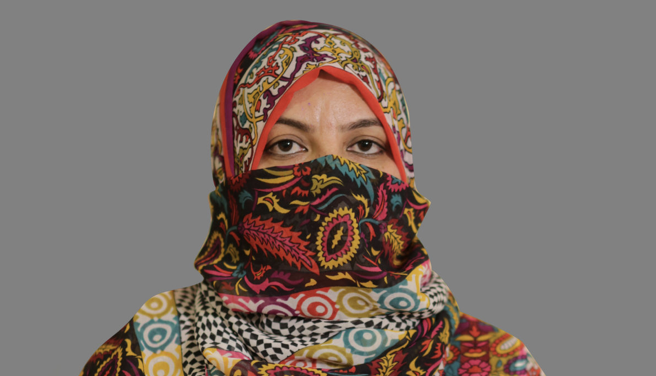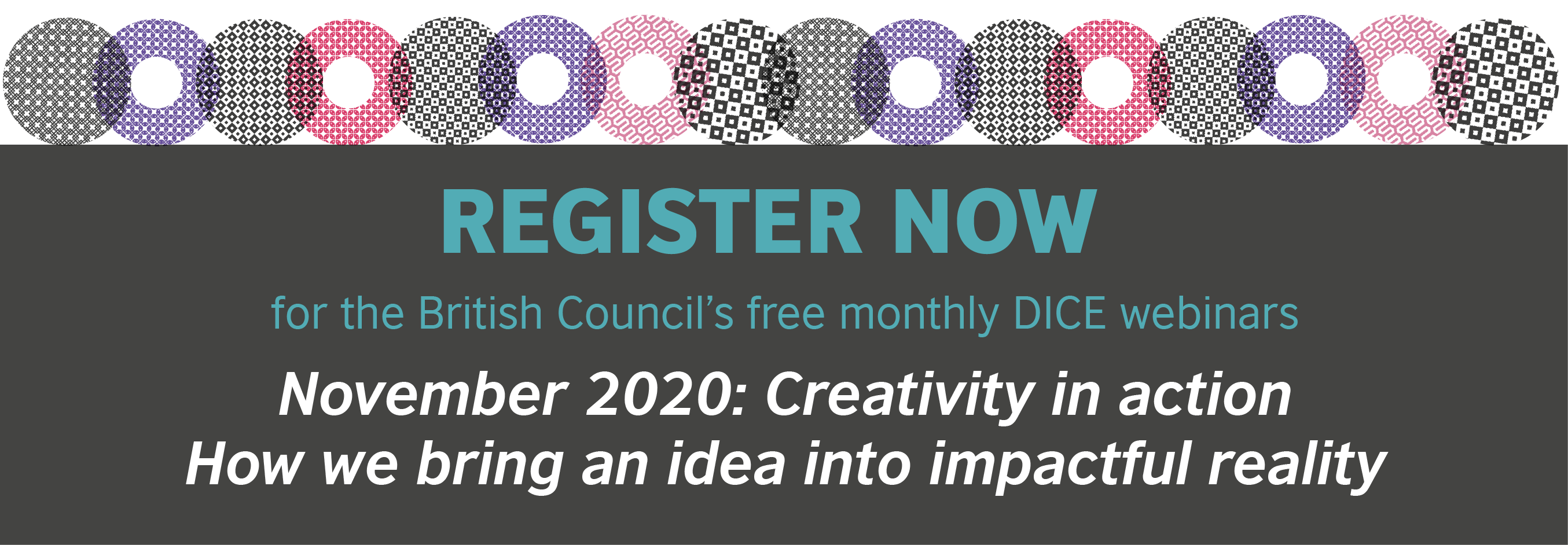Shopping and social change: linking women artisans from Pakistan to international markets
Rural Pakistani women with skills in weaving, ceramics and other handcrafts can now sell their creations worldwide through a new website. They're also receiving training in business and marketing.

Lubna Sher Mohammad (below) has been doing embroidery for the last six years, making beautiful designs to supplement the income of her husband, and to help them both cover the cost of raising five children. Originally from Kohat, the family moved to Karachi in search of work.
Around the world, migrants like Lubna bring from their rural communities a rich heritage of artisanal skills, ranging across weaving, woodworking, ceramics and many other handcrafts.

If women earn money, around 90% of it stays in the community... If women are economically empowered, more money is available to spend on maternal health, child health, and education
Is there some way of preserving those skills in a 21st century era of mass production standardisation, and of global shopping? And could such artisanal traditions create employment and raise living standards?
Jen Georgeson, chief executive of a UK-based social enterprise and online marketplace called So Just Shop, responds with an emphatic “yes”. Her website offers a wide range of handcrafts, produced by 50 different groups spread across 20 different countries on three continents, and is focused on the empowerment of women.
“It is quite a simple premise,” Jen says, citing data from the United Nations. “If women earn money, around 90% of it stays in the community, while the equivalent for men is only 30-40%. If women are economically empowered, more money is available to spend on maternal health, child health and education.”
In Pakistan, the British Council DICE fund is supporting a partnership between So Just Shop and the Foundation for Arts, Culture and Education (FACE), a Pakistan-based organisation led by Zeejah Fazli, an entrepreneur with long experience of musical and cultural events. The project is called Womart.
Zeejah explains: “We are selecting and training five women artisans from outlying areas of each of Pakistan’s five provinces, so that is a total of 25 women in all. Lubna is one of the beneficiaries. We are developing products jointly with the help of So Just Shop, to market them both in Pakistan and in the UK. And it is not just about getting products on the website. We have narrated stories, we have gone into the lives of the artisans, how they have developed their careers, what are their lives, their support structures in the family, their background of struggle.”
The project has faced some big challenges. The women come from very rural communities, with limited access not just to the international market, but also to the Pakistani market for their products. For some, attending the workshops was the first time they had travelled outside of their home villages. As many villages are patriarchal and socially conservative, this required obtaining special permission. In any case, reaching the participants involved traversing the country’s difficult landscape, from deserts to mountains, and negotiating poor transport links.
When the first workshops were held some of the women could not attend because of poor weather and road conditions. The project managers had to equip the women with smartphones, so that they could see how their products are marketed on the internet and view other handcrafts. Even then, the mobile phone signal in some villages is weak.
Targeting different markets
A key issue is how to meet the different demands of markets in Pakistan on the one hand, and in developed countries like the UK, on the other.
In Pakistan, handcrafts are not a niche market. Zeejah says they are looking instead at making a range of “basic products” for everyday use, including pouches or wallets to hold mobile phones, laptop covers and handbags. He wants to connect the artisans with Pakistani fashion outfits. The initial focus, however, is on making the products available directly to consumers through a website. Zeejah has been negotiating with SCO, the public sector telecom services organisation, to enable the artisans to use a mobile phone-based payments system, and with mobile phone operator Telenor Pakistan to investigate micro-finance options.
Other factors also have to be taken into account when seeking the optimal balance between serving the domestic and international markets such as the fluctuating value of the Pakistani rupee. The depreciation of the rupee over the last year has encouraged Zeejah to focus somewhat more on exports.
Jen explains that in the UK, So Just Shop offers both direct-to-consumer and wholesale lines. A third option is bespoke lines commissioned by other organisations.
“The direct-to-consumer lines, sold via the website, tend to be limited editions, so to speak,” she says. “We never expect the artisans to make, say, more than 100 products in a go.” This is a classic niche market: these consumers love the fact that what they are buying is unique, handmade and a one-off.
On the other hand, wholesale lines require bigger artisan groups able to deliver larger product runs to a consistent level of quality.
“When you are dealing with handmade items there is always a balance to be struck between quality and volume. There are pros and cons of both ways of doing it,” says Jen, who believes the best approach is to try and develop multiple revenue streams, to allow the business to keep on supporting the individual smaller artisans while growing wholesale and bespoke production so as to build a more sustainable business.
We weren’t naïve enough to think this would be simple or straightforward
Looking forward, Zeejah is enthusiastic. He says Pakistani government agencies have expressed interest in the project, particularly its ability to create employment and reduce poverty. The immediate focus is on the formal launch of the Pakistan market-facing website www.womart.pk, but beyond that he says his dream would be to add something like five new artisans every month, scaling up overall production and sales and perhaps developing some individual brands.
Jen says that organising the initial group of 25 women artisans has been a major achievement. She comments: “We weren’t naïve enough to think this would be simple or straightforward. What was so good about the British Council was their understanding that in order to work with these communities there needs to be a level of support. Womart’s structure and funding for training enables this to become a more long-term strategic approach to the economic empowerment of these women’s groups.”
The British Council and the DICE Collaborators (including the organisations featured in this article) invite you to join them in a series of conversations about reducing inequalities, collaborating across borders and oceans, and operating impact-focused enterprises at a time of profound change. These free, monthly live events are co-hosted by impact-focused organisations in Brazil, Egypt, Indonesia, Pakistan and South Africa and their partners in the UK, and draw on their experience of collaborating across borders to address challenges such as youth unemployment, environmental catastrophe, disability rights, and gender inequality in local communities. Find out more and register here.
The DICE Series tells the stories of collaborations which brought together enterprise development experts from the UK with specialists working in five emerging economies – Brazil, Egypt, Indonesia, Pakistan and South Africa – during 2019-20 with the aim of addressing entrenched issues of economic and social exclusion. Read more about the British Council’s DICE programme here.


